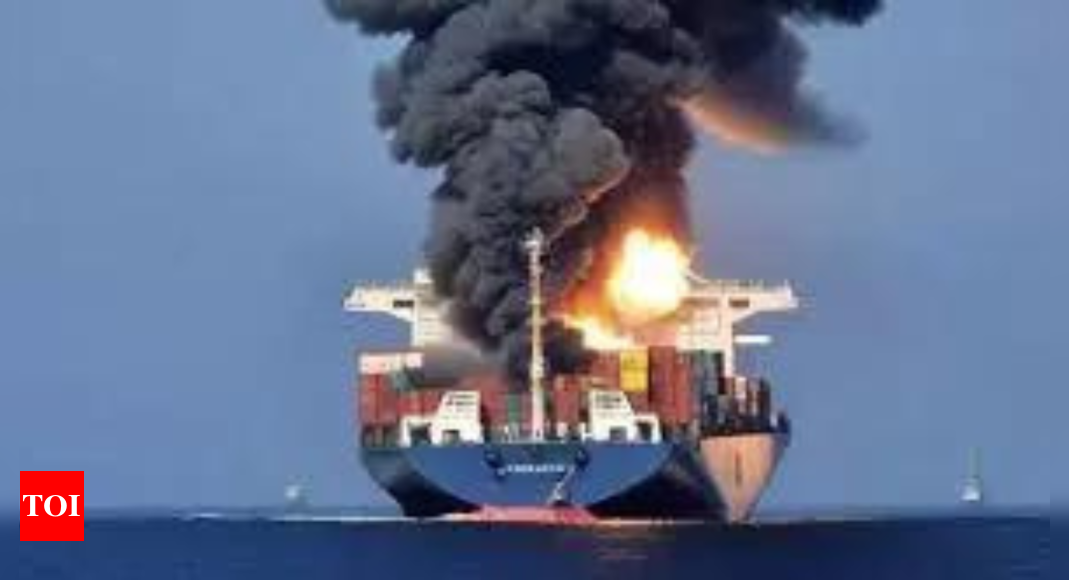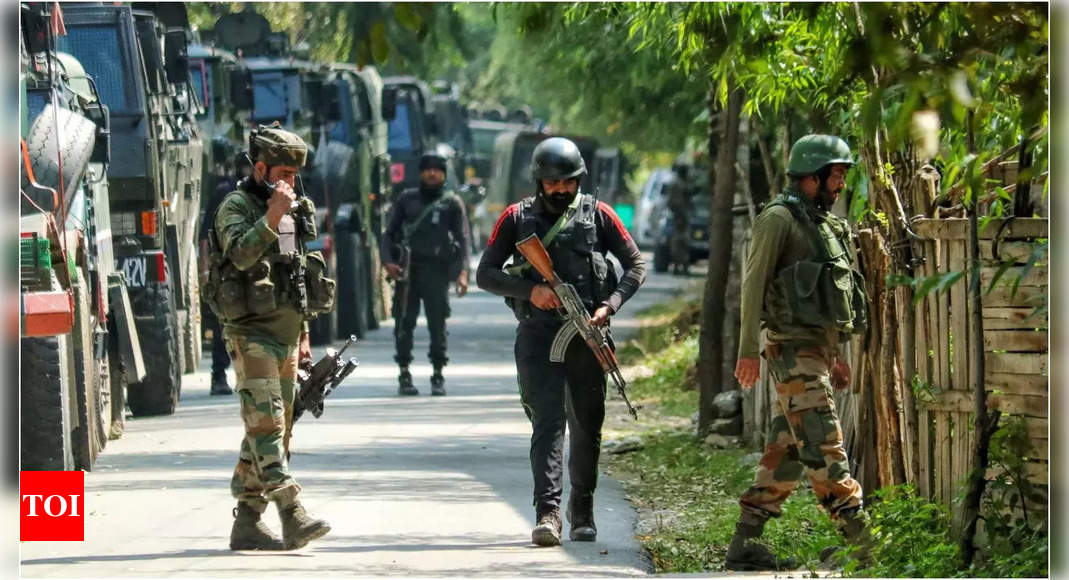
DUBAI: A suspected attack by Yemen‘s Houthi rebels targeted a ship in the southern reaches of the Red Sea early Tuesday, officials said, the latest in their campaign of assaults over the Israel-Hamas war.
The attack comes as Yemen’s main sponsor, Iran, weighs a possible retaliatory attack against Israel over the assassination of Hamas official Ismail Haniyeh in late July, which has renewed fears of a wider regional war breaking out across the Mideast.
Already, the Houthi assaults have have disrupted the $1 trillion of goods that flow annually through the maritime route crucial to trade between Asia, Europe and the Middle East, while also sparking the most intense combat the US Navy has seen since World War II.
The attack happened around 115 kilometers (70 miles) south of the Houthi-held port city of Hodeida, the British military’s United Kingdom Maritime Trade Operations center said. The attack saw an explosive detonate near the ship, though “the vessel and crew are reported safe,” the UKMTO said.
The private security firm Ambrey similarly reported the attack, saying the ship saw “two ‘close-proximity’ explosions.”
Though the Houthis didn’t immediately claim the attack, it sometimes can take hours or even days to acknowledge their assaults. They’ve also claimed others that apparently haven’t happened.
The Houthis have targeted more than 70 vessels with missiles and drones in a campaign that has killed four sailors since the start of the war in Gaza in October. They have seized one vessel and sunk two in the time since. Other missiles and drones have been either intercepted by a US-led coalition in the Red Sea or splashed down before reaching their targets.
The rebels maintain that their attacks target ships linked to Israel, the United States or the UK as part of a campaign they say seeks to force an end to the war. However, many of the ships attacked have little or no connection to the conflict, including some bound for Iran.
The Houthis have launched drones and missiles toward Israel, including an attack on July 19 that killed one person and wounded 10 others in Tel Aviv. Israel responded the next day with airstrikes on the Houthi-held port city of Hodeida that hit fuel depots and electrical stations, killing and wounding a number of people, the rebels say.
After the strikes, the Houthis paused their attacks until Aug. 3, when they hit a Liberian-flagged container ship traveling through the Gulf of Aden. A Liberian-flagged oil tanker came under a particularly intense series of attacks beginning Aug. 8 likely carried out by the rebels.
As Iran threatens to retaliate over Haniyeh, the US military has told the USS Abraham Lincoln aircraft carrier strike group to sail more quickly to the area. America also has ordered the the USS Georgia guided missile submarine into the Mideast, while the USS Theodore Roosevelt aircraft carrier strike group had been in the Gulf of Oman. Additional F-22 fighter jets have flown into the region, while the USS Wasp, a large amphibious assault ship carrying F-35 fighter jets, is in the Mediterranean Sea.
The attack comes as Yemen’s main sponsor, Iran, weighs a possible retaliatory attack against Israel over the assassination of Hamas official Ismail Haniyeh in late July, which has renewed fears of a wider regional war breaking out across the Mideast.
Already, the Houthi assaults have have disrupted the $1 trillion of goods that flow annually through the maritime route crucial to trade between Asia, Europe and the Middle East, while also sparking the most intense combat the US Navy has seen since World War II.
The attack happened around 115 kilometers (70 miles) south of the Houthi-held port city of Hodeida, the British military’s United Kingdom Maritime Trade Operations center said. The attack saw an explosive detonate near the ship, though “the vessel and crew are reported safe,” the UKMTO said.
The private security firm Ambrey similarly reported the attack, saying the ship saw “two ‘close-proximity’ explosions.”
Though the Houthis didn’t immediately claim the attack, it sometimes can take hours or even days to acknowledge their assaults. They’ve also claimed others that apparently haven’t happened.
The Houthis have targeted more than 70 vessels with missiles and drones in a campaign that has killed four sailors since the start of the war in Gaza in October. They have seized one vessel and sunk two in the time since. Other missiles and drones have been either intercepted by a US-led coalition in the Red Sea or splashed down before reaching their targets.
The rebels maintain that their attacks target ships linked to Israel, the United States or the UK as part of a campaign they say seeks to force an end to the war. However, many of the ships attacked have little or no connection to the conflict, including some bound for Iran.
The Houthis have launched drones and missiles toward Israel, including an attack on July 19 that killed one person and wounded 10 others in Tel Aviv. Israel responded the next day with airstrikes on the Houthi-held port city of Hodeida that hit fuel depots and electrical stations, killing and wounding a number of people, the rebels say.
After the strikes, the Houthis paused their attacks until Aug. 3, when they hit a Liberian-flagged container ship traveling through the Gulf of Aden. A Liberian-flagged oil tanker came under a particularly intense series of attacks beginning Aug. 8 likely carried out by the rebels.
As Iran threatens to retaliate over Haniyeh, the US military has told the USS Abraham Lincoln aircraft carrier strike group to sail more quickly to the area. America also has ordered the the USS Georgia guided missile submarine into the Mideast, while the USS Theodore Roosevelt aircraft carrier strike group had been in the Gulf of Oman. Additional F-22 fighter jets have flown into the region, while the USS Wasp, a large amphibious assault ship carrying F-35 fighter jets, is in the Mediterranean Sea.









